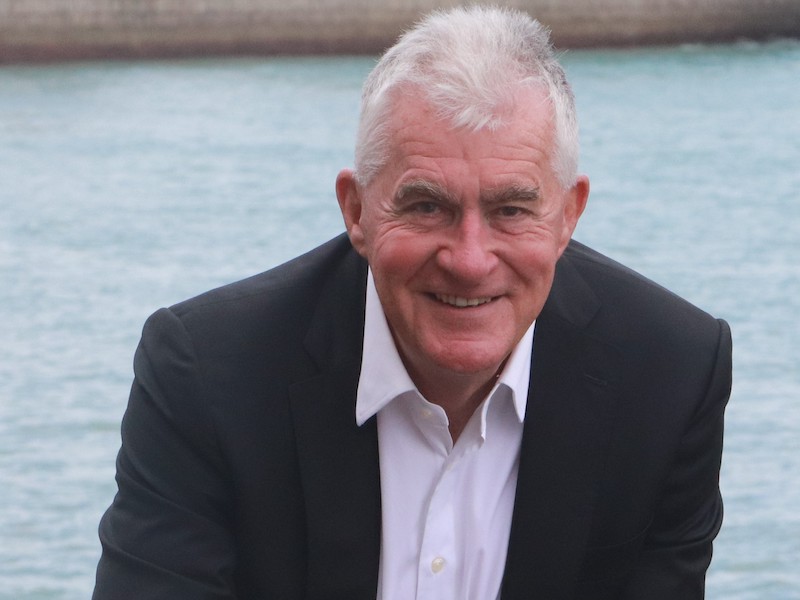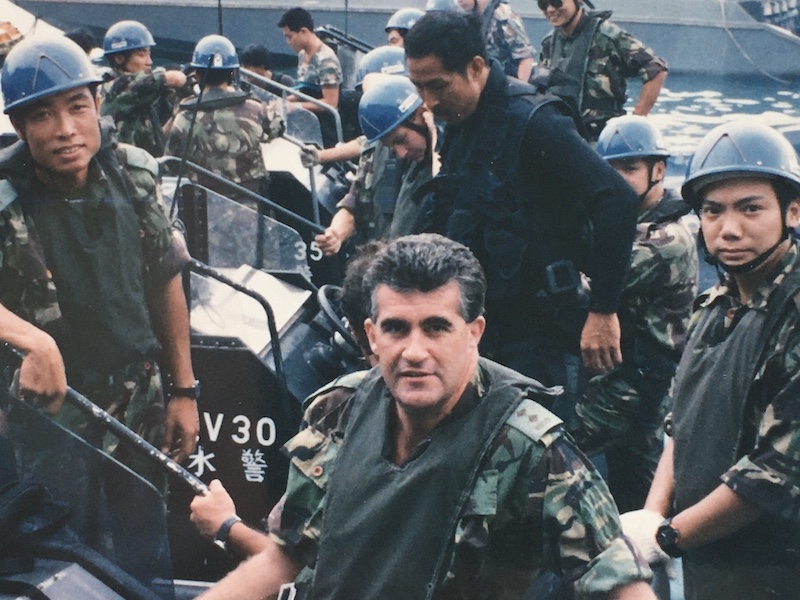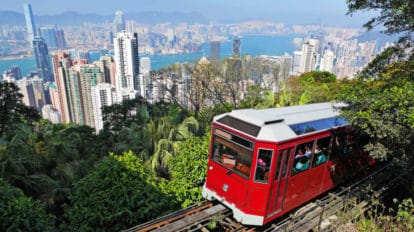Looking for new books by English writers? Les Bird has published two Hong Kong books and memoirs that explore the life and history of the Marine Police. We chat to him about his time as a police officer and what inspires his writing. Also, find out what to expect when reading his newest work, about the arrival of Vietnamese boatpeople in Hong Kong from the 1970s to the 1990s, and some police stories from that time.
Where are you from and what do you miss about it?
I was born and went to school in Staffordshire in England, but I have lived my whole adult life elsewhere – Africa, Australia, Hong Kong, Southeast Asia. So, I don’t miss England. Hong Kong is my home.
How long have you lived here?
I joined the Royal Hong Kong Police in 1976 and worked mostly in the Marine Division for 21 years. After leaving the force in 1997, I worked in the security industry in Thailand and Hong Kong.
Back in the 1970s, one of the first places I lived in Hong Kong was Tai O Police Station. I was the rural inspector looking after the western half of Lantau Island and the entire top floor of the police station was my quarters. The station was built as an anti-piracy station in 1902, and things hadn’t changed much when I lived and worked there in 1978. We really were cut off from the outside world. There was no road so our patrols around Lantau were on foot. There was one telephone line in the station, but that didn’t work if it was raining. Dispatches, or orders, would arrive from time to time on a visiting police launch. It really was a sleepy outpost. The building is a hotel today.
Tell us a bit about your writing career and your Marine Police stories and memoirs.
I have been a part-time writer for most of my life, beginning at a young age as the editor and main contributor of my school newspaper. I wrote what I thought were humorous essays about the school, the teachers and other pupils. But I was forever being called up before the headmaster for being too cheeky. Over the years, I have written articles for magazines and produced newsletters for sports clubs.
My first book and memoir was published in 2019 – A Small Band of Men: An Englishman’s Adventures in Hong Kong’s Marine Police. I followed that with my latest Hong Kong book, Along the Southern Boundary: A Marine Police Officer’s Frontline Account of the Vietnamese Boatpeople and their Arrival in Hong Kong. It was published in 2021.
Give us an insight into this latest book; it sounds like an interesting period in Hong Kong’s history.
Along the Southern Boundary features 100 previously unpublished photographs taken in the late 1970s and 1980s by myself and some of my former Marine Police colleagues while we were out patrolling the South China Sea searching for refugee vessels that were making for Hong Kong from war-torn Vietnam.
Hundreds of thousands of people were leaving Vietnam at that time in vessels of all shapes and sizes. They were escaping. The photos we took are quite striking and capture the ends that desperate people will go to when their whole world collapses around them. I wrote the narratives and Marine Police stories behind each photograph. The book takes the reader through a decade of tales of courage and tragedy experienced by the boatpeople. The former governor of Hong Kong, then Sir David Wilson, now Lord Wilson of Tillyorn, agreed to write the foreword for the book. Sales are doing very well.
What’s the most enjoyable thing about the writing experience for you? What about the biggest challenge?
Primarily, it’s the satisfaction that someone else might enjoy what I have created. I think this applies to any writer or artist, in any art form, be it writing, painting, acting, music, whatever. Also enjoyable is when your work is recognised by others, in particular highly respected institutions. My books have been featured at the 2021 and 2022 Hong Kong International Literary Festivals, so that’s pretty gratifying too.
The biggest surprise I have had since becoming an author is the wide-ranging interest shown in my first memoir, A Small Band of Men. When it came out it was Bookazine’s “Book of the Week” for quite some time. Then, just last year, a film company contacted me about possibly making a TV series of the book. So, there’s another source of satisfaction, albeit totally unexpected.
As for the biggest challenge: after submitting the 125,000-word draft of this first book to my publisher, he asked that it be reduced to under 100,000 words. “Big fat books by first-time authors don’t sell, no matter how good they are,” he said. Cutting out a quarter of the text was heartbreaking, but it worked – the book was tighter and read better.
Do you have a set writing routine?
I’m most productive in the morning, so an early four-hour session works best. Even if I begin with nothing particular in mind, a thought or an idea that I’ve stored away in my head over the previous 24 hours pops up, then it just kicks off from there.
What book or author have you enjoyed reading recently?
I usually have several books on the go at one time. One day, the ever-growing stack of books on the bedside table will topple over and suffocate me while I sleep. I have just finished Sebastian Faulks’ Where My Heart Used to Beat and I am reading, once more, Evelyn Waugh’s Sword of Honour trilogy. These two writers are amongst my favourites.
Favourite book of all time?
Many, but Truman Capote’s In Cold Blood is worth a mention as it convinced me that the genre of creative non-fiction can work. Creative non-fiction is the recording of real events written as a novel. It’s the genre I adopted in writing A Small Band of Men, which began as a memoir but ended up reading like a novel. I think it works.
Do you write full-time or do you have a “day job”?
Writing is my day job. However, a spin-off of being an author are the invitations to speak publicly. I do a lot of this now, not only for organisations such as the Royal Geographical Society and the Royal Asiatic Society, but also motivational speaking for corporate institutions. Last year, there were talks and presentations in both London and Hong Kong, and I’ve just returned from giving a talk in LA at an Andy Warhol Foundation event.
What do you like to do in Hong Kong when you’re not writing police stories and memoirs?
For many years, I’ve been competing in triathlon. I particularly enjoy the long-distance events and have competed in seven Ironman races. So, in my spare time it’s usually swim or cycle or run – and then usually collapse. But a side effect to this is that some of my best writing ideas materialise during long ocean swims or tough cycle rides. I’ve been told that this is to do with the relationship between extreme physical exertion and high levels of endorphins – which, fortunately for me, occasionally translates into creative thought.
Got any new writing projects on the boil for 2023 and beyond?
In doing research for my second book, about the Vietnamese boatpeople saga, and then later doing all this public speaking, I have met and become friends with many more refugees and former refugees who have lived quite remarkable lives – lives filled with incredible courage, risk and danger; stories of separation, death and survival. These are people that have found the inner strength to continue despite the tremendous losses and trauma they have experienced. With their permission, I’m writing a book about their lives. It’s a book about survival.
Interested in Hong Kong history and Les Bird’s Marine Police stories and memoirs? His books are available in Bookazine, Kelly & Walsh and the Hong Kong Book Centre. You can also find them online at Amazon Books and Goodreads.
This article first appeared in the Summer 2023 issue of Expat Living magazine. Subscribe now so you never miss an issue.







